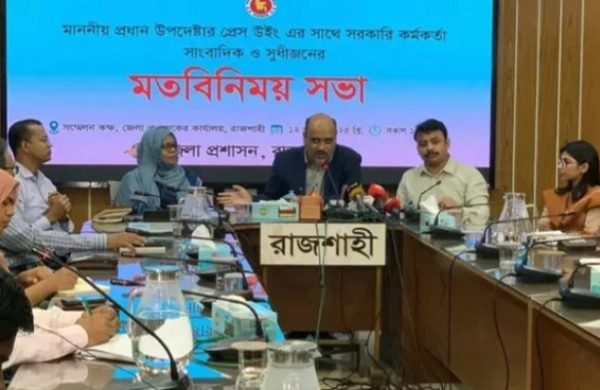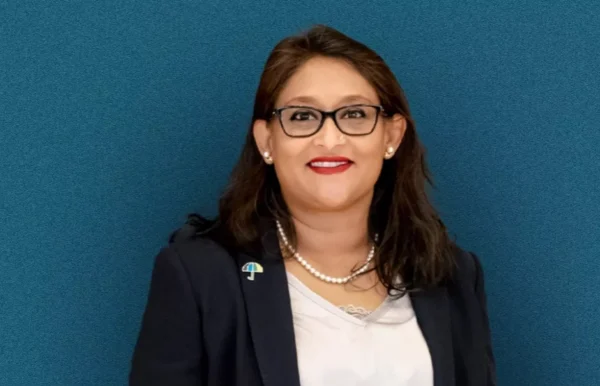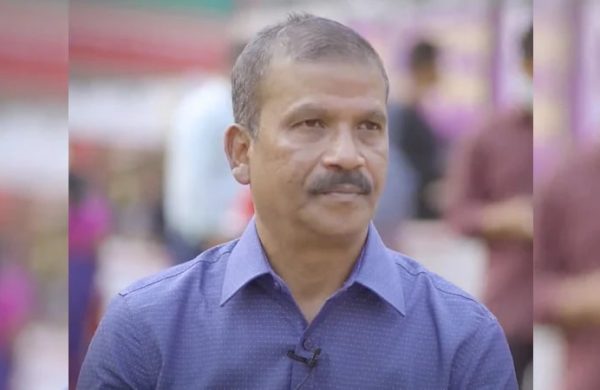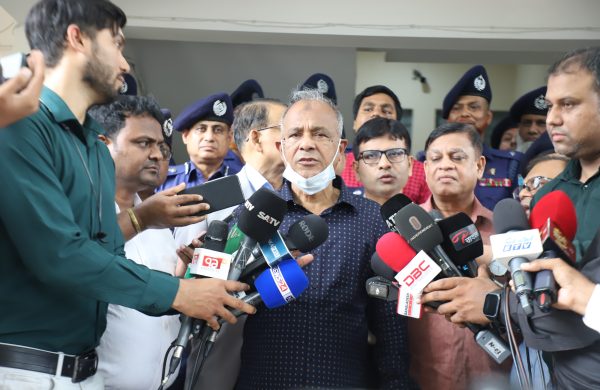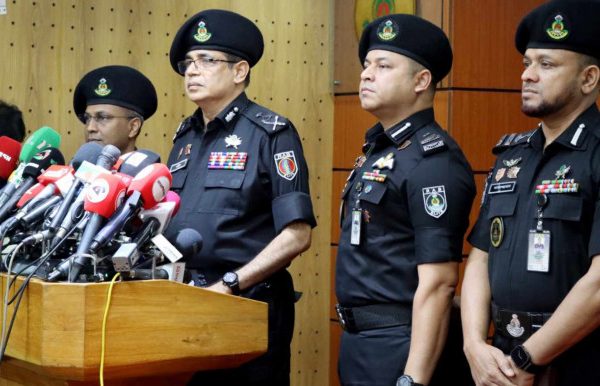Mobile phone operators hail govt move to introduce satellite internet
- Update Time : Friday, November 8, 2024

BSS, Dhaka
Mobile phone operators and other stakeholders have welcomed the move of opening doors for satellite internet, appealing to telecom regulator to consider collaborative approach and non-discriminatory treatment for successful integration of this service into the country’s telecommunications landscape.
They said the initiative might unleash new opportunities for bridging digital divides alongside backhauling, disaster management and customer data utilization.
The operators and stakeholders, however, are meticulously reviewing draft guidelines for Non-Geostationary Orbit (NGSO) Satellite Service to assess the possible impact of it into the industry as it could pave way of wholly owned foreign companies to obtain licenses such as Elon Musk’s Starlink and similar companies to enter Bangladesh.
The telecom regulator -Bangladesh Telecommunication Regulatory Commission (BTRC) – on October 29 uploaded the draft regulatory and licensing guidelines for NGSO Satellite Service Operator on website, seeking opinion by November 18 to finalize the guidelines.
Talking to BSS, Shahed Alam, chief corporate and regulatory officer of Robi Axiata, said, “We welcome the initiative to introduce satellite internet in our country, recognizing its potential to revolutionize data services.”
He noted that this advancement could pave the way for new opportunities in areas such as backhauling, disaster management and customer data utilization.
On the contrary, Shahed Alam expressed their concerns regarding the proposed guidelines and the existing ecosystem for implementing such services, as they may prove impractical.
He said, “We believe that a collaborative approach is essential to ensure the successful integration of satellite internet into our telecommunications landscape.”
Taimur Rahman, chief corporate and regulatory affairs officer at Banglalink, said, “The regulator’s initiative to conduct a public consultation before introducing this new service is commendable, which we appreciate.”
He continued, “We’re confident that this process will provide essential insights to help shape its future direction.”
As this service is new to Bangladesh, Taimur Rahman said, they are diligently reviewing the BTRC’s guidelines to evaluate its impact on the telecommunications sector and foreign direct investment (FDI) in both the short and long terms.
“Following a thorough assessment, we will submit our feedback to the BTRC,” he said, adding, “It is vital that we consider the interests of all stakeholders in the digital ecosystem.”
Sharfuddin Ahmed Chowdhury, Head of Communications, Grameenphone, said, “Grameenphone welcomes any new technology that brings positive change to people’s lives, society, the economy, and the country as a whole.”
However, the introduction of any new license should ensure non-discriminatory treatment that promotes market competitiveness among all players, including existing ones, across the entire value chain, he added.
Sharfuddin noted, “It is important to thoroughly assess the security implications of all aspects of the new technology and incorporate the necessary provisions in the licensing obligations to address these concerns.”
Appreciating BTRC for initiating the consultation process, he said, “We’re currently reviewing the draft guidelines and will respond to BTRC.”
Internet Service Providers Association of Bangladesh (ISPAB), a platform of firms engaged in providing internet services to the customers, is also ready to welcome any new technologies. Before that, it emphasized to identify the necessity of this technology first before moving to it.
ISPAB President Md Emdadul Hoque told BSS that they always welcome new technologies if those are suitable for the country and industry.
“We’ve no objection to welcome new technologies, but priority should be considered first whether the technology is suitable for the country and its people,” he said.
The ISPAB President suggested the telecom regular to consult with the stakeholders before switching to the new service, as foreign companies will take the money out of the country.
The draft guidelines said that proprietorship, partnership and companies registered under “Registrar of Joint Stock Companies and Firms” under the Companies Act 1994 are eligible to apply for the license to build, own, maintain and operate NGSO Satellite systems and services in Bangladesh.
It also mentioned that 100 percent FDI or Foreign Partnership or Joint Venture or investment from Non-Resident Bangladeshi (NRB) is permitted to build, own, maintain and operate NGSO Satellite systems and services.
According to the draft guidelines, the license will be valid for five years.
It adds that the licensee is authorized to provide the following NGSO satellite services: broadband internet services, intranet services (domestic data communications), Internet of Things and machine-to-machine communication, earth station in motion service, earth exploration satellite service, remote sensing/meteorological services and any other services approved by the BTRC.
However, operators aren’t authorized to provide direct-to-home services, broadcasting services, satellite IMT-based services or telecommunications services.
The application/processing fee has been set at Taka 5 lakh, with an acquisition fee of $10,000 and an annual fee of $50,000. Additionally, an annual station/terminal fee per terminal is set at $20.
The licensee will also have to share 5.5 percent of its annual audited gross revenue with the BTRC. Another 1 percent of the gross revenue must be paid as part of the “contribution to space industry development and management”.
The licensee must establish at least one gateway system within Bangladesh before commencing services. However, the BTRC encouraged the licensee to establish additional gateways.
Any user terminal placed within Bangladesh’s geographical boundary must be authenticated and served through this local gateway. All traffic from these terminals must be routed through this local gateway for services within Bangladesh, according to the draft.
The NGSO gateway shall connect to international internet gateways to handle international internet data traffic.


